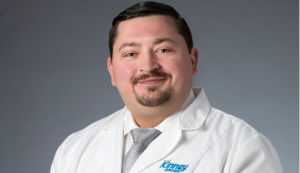
New York’s Plan to “Carve PBMs Out” of Medicaid will Improve Patient Care & Access and Should be Implemented Without Delay

As a pharmacist who works in the City of Syracuse, caring for patients who often lack consistent access to healthcare is my focus. My pharmacy provides free prescription delivery to ensure those with mobility or transportation challenges can receive their medications when needed. We are also open late on weeknights and weekends to accommodate patients’ work and personal schedules. Our store administers thousands of influenza, pneumonia, shingles, and now COVID vaccinations annually. Our entire pharmacy team helps provide medications to patients being discharged from two of the largest hospitals in Syracuse in a joint effort to reduce preventable readmissions. My pharmacy is incredibly busy and the majority of the prescriptions we fill are covered under a Medicaid Managed Care plan.
I take an active interest in the issues that affect both my profession and my patients. I was excited to learn last year that New York had extensively studied its Medicaid program and concluded that the State was overpaying by millions of dollars due to health plan and PBM practices related to the Managed Care program. I was also relieved to see that the pharmacy benefit would be transitioned back to the State, providing better access for patients, more sustainable reimbursement for pharmacies, and significant savings for the taxpayers of New York. I do acknowledge concerns raised by some 340b providers and agree that the State needs to give additional thought to that program. Finally, I agree that the State should properly allocate and release the $100 million it set aside to help offset the impact to 340b entities without delay.
With that being said, a full repeal of the transition to Fee for Service, as some including health plans and PBMs have proposed, will have many more long-lasting negative effects. Community pharmacies would continue to close, and patients would lose convenient access to their medications and the neighborhood pharmacists who provide vital care and services seven days a week. Also, 340b providers would continue to lose contract pharmacies able to fill prescriptions for their patients.
How do I know? Because I’ve seen this scenario play out before, with disastrous outcomes, especially for already disadvantaged patients. Here’s what happened: We previously operated two other pharmacies on the south side of Syracuse. One was located in a locally owned grocery store and the other in a federally qualified health center where we filled a great deal of prescriptions under the Medicaid 340b Drug Pricing Program. Also, approximately 70% of our business in each location was Medicaid Managed Care. The continual decline in reimbursement rates for drugs that simultaneously increase in cost ultimately forced us to close both locations. While this was disappointing for so many reasons, I was most concerned about our patients. Patients enrolled in Medicaid Managed Care programs are often limited in their choice of pharmacy due to restricted networks, making it incredibly difficult to access life-sustaining prescription medications and pharmacy services. When pharmacies close, patients have even fewer choices, further constricting their access to care. Unfortunately, a delay or repeal of this transition will only result in more pharmacy closures.
Sadly, a significant opportunity would be missed to improve access to prescription medications while lowering overall costs of the program. The pandemic highlighted numerous disparities in our health care system and in our communities; why would we not jump at the chance to address this issue? Patients deserve better care; in many cases, their lives depend on it.
The bottom line is that New York’s plan to “carve PBMs out” of Medicaid will improve patient care and access and should NOT be repealed but should be implemented without delay.
Daniel Faliy, PharmD, is Supervising Pharmacist at Kinney Drugs in Syracuse.
